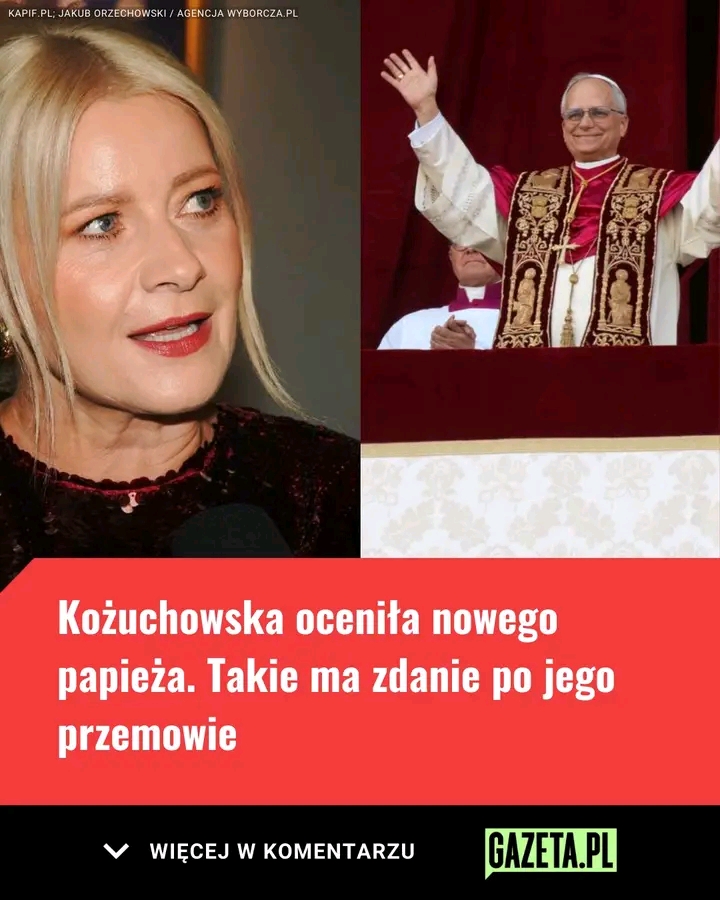NFL
Nie ukrywa, że wiara jest dla niej bardzo ważna. Więcej w komentarzu 👇👇👇

Kożuchowska oceniła nowego papieża. Takie ma zdanie po jego przemowie
Robert Prevost został papieżem. Po jego wyborze także gwiazdy zaczęły dzielić się odczuciami. Co napisała Małgorzata Kożuchowska, która głośno mówi o swoim podejściu do wiary?
Leon XIV. Tak brzmi imię naszego nowego papieża. 8 maja po godz. 18 dowiedzieliśmy się, że kardynałowie wybrali nową Głowę Kościoła. Po godz. 19 poznaliśmy osobę, która przez następne lata będzie pełnić tę funkcję. Decyzją duchownych zaszczyt ten otrzymał Robert Prevost. Jego przemowę ocenia świat, a także znane osoby, które dzielą się swoimi odczuciami. Do tej grupy należy Małgorzata Kożuchowska.
Piotr Kraśko zareagował od razu po wyborze Leona XIV
Tuż po ogłoszeniu, że mamy nowego papieża, zareagował Piotr Kraśko. Dziennikarz dodał na Instagramie zdjęcie ze studia “Faktów” i przy okazji napisał kilka słów od siebie. Zobacz: Piotr Kraśko opublikował wpis chwilę po wyborze papieża. Kilka słów. Wybór Amerykanina na Głowę Kościoła skomentowała także Alicja Bachleda-Curuś, która od lat mieszka w USA. Co dodała? Zobacz: Alicja Bachleda-Curuś zareagowała na wybór Amerykanina na nowego papieża. Wymowne zdjęcie



